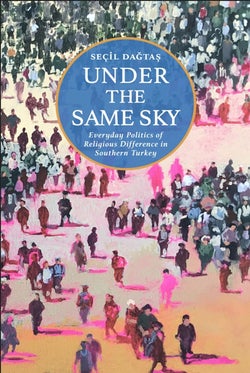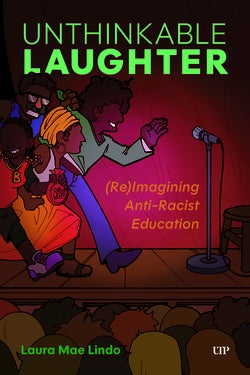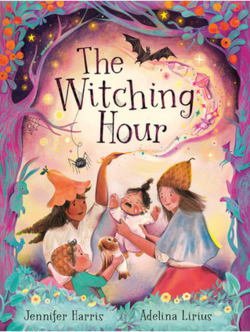See more books from Arts: 2024 books | 2023 books | 2022 books | 2021 books | 2020 books | 2019 books | 2018 books
Help us grow this list - please tell us about your new book.
New books in 2025

Under the Same Sky: Everyday Politics of Religious Difference in Southern Turkey by Seçil Daǧtaș, University of Pennsylvania Press, 2025.
In a region often portrayed through the lens of conflict and division, this ethnography brings to life the subtle, often overlooked negotiations occurring in social spaces such as bustling city bazaars, shared worship sites, interfaith unions, home gatherings, and a multireligious choir. Set against the backdrop of major political upheavals in Turkey and Syria before the 2023 earthquakes devastated the region, the book demonstrates how Arab ‘Alawis, Christians, and Jews, alongside their Sunni Muslim neighbors, use familiar social idioms—kinship, hospitality, love, and companionship—to reproduce religious differences.
Daǧtaș argues that religious difference is more than an identity marker for these communities, as it is often treated in studies focused on statecraft or political movements. It is a dynamic aspect of social relations which is constantly redefined by race, class, citizenship, and gender, and unsettled by overlapping practices and multireligious belonging. Under the Same Sky focuses on religious difference as lived and reworked in daily encounters—within the larger context of a majoritarian Turkish Sunni state—inviting readers to reconsider secularism, religious plurality, and the nature of political life.

Unthinkable Laughter: (Re)Imagining Anti-Racist Education by Laura Mae Lindo, University of Toronto Press, 2025.
Does anti-racist education need to rely so heavily on feelings of anxiety, anger, or guilt? Can comedy, and more specifically, African American “race comics,” help us rethink our approach to anti-racist education? At a time when critical race theory is under attack, the need for new approaches to anti-racist education is urgent. Unthinkable Laughter addresses this need, highlighting the power of humour and race comedy as valuable alternative strategies. Drawing on her experiences in politics – as a former member of Provincial Parliament in Ontario, anti-racism critic for the province, and chair of Ontario’s first-ever Black Caucus – Laura Mae Lindo offers a fresh perspective on rethinking anti-racism work in educational settings. The book applies critical race theory and culturally relevant pedagogies to Canadian experiences in education and politics, addressing a significant representational gap that often fosters the misleading belief that racism in education is a problem unique to the United States. By introducing this theoretical framework to Canadian contexts, Lindo offers a more inclusive, global perspective on both critical race theory and culturally relevant pedagogies in education. Ultimately, Unthinkable Laughter calls for a shift in how we approach anti-racist education, urging the exploration of humour and race comedy as powerful and effective alternative strategies.

The Art of Memes in Feminist Digital Culture by Shana MacDonald, Ohio State University Press, 2025.
In The Art of Memes in Feminist Digital Culture, Shana MacDonald argues that memes are a unique medium of communication that both respond to and reflect the current cultural moment.
The book—the first to treat memes as a unique medium of communication distinct from other internet and digital media—examines feminist and queer activist uses of memes as a form of digital resistance, demonstrating through collage, reenactment, and montage that countercultural meme makers intervene in the status quo and offer cultural critiques with potentially broad circulation. In this way, MacDonald situates memes as part of a lineage of aesthetic resistance, exploring the operational logic of bricolage, intertextuality, and intermediality within contemporary internet meme cultures on the left.

The Witching Hour by Jennifer Harris, Penguin Random House, 2025.
A family of witches desperately tries to entertain a cranky baby in this delightful picture book for fans of Little Witch Hazel and Go the F**k to Sleep.
In the witching hour between dinner and bedtime, anything can happen: laughter, tears, fun screaming, not-fun screaming . . . parents, siblings, pets and neighbours are all familiar with this dreaded time of day.
What happens when that cranky baby is part of a family of witches? Turns out, it's pretty much the same, except sometimes the toys levitate and the soothing songs sound a little different . . .
The Witching Hour is a spare, slyly funny and deeply familiar slice-of-life story featuring a fussy little witch and their increasingly desperate family.

Design Heuristics for Emerging Technologies: AI, Data, & Human-Centered Futures – Considerations for the Rights of Women by Kem-Laurin Lubin, Universal Write Publications, 2025.
Kem-Laurin Lubin delivers a visionary exploration of the intersection between artificial intelligence, systemic bias, and the urgent need for equity in digital design. Grounded in feminist theory and critical data studies, this book tackles the complex ways patriarchal systems shape AI-powered technologies, with a particular focus on their impact on women’s rights and reproductive healthcare—an issue made even more pressing in the wake of the reversal of Roe v. Wade.
Through compelling case studies, such as the controversial AI project in Salta, Argentina, Lubin illustrates the tangible consequences of algorithmic design in real-world contexts. Organized under six heuristic categories, these examples provide a robust framework for practitioners and policymakers to design equitable systems. Engaging deeply with seminal works like Algorithms of Oppression by Safiya Noble and Race After Technology by Ruha Benjamin, Lubin critiques current AI frameworks and offers a path forward.
The book examines global initiatives, from Europe’s GDPR to Canada’s Artificial Intelligence and Data Act, highlighting their limitations and proposing actionable, equity-centered heuristics. With a critical lens on existing policies, Lubin integrates insights from global policy examinations and targeted case studies to propose scalable, human-centered solutions for more inclusive technologies.

The Migrant Rain Falls in Reverse: A Memory of Vietnam, by Vinh Nguyen, Penguin Random House, 2025.
With the fall of Saigon on April 30, 1975, the U.S. war in Vietnam ended, but the refugee crisis was only beginning. Among the millions of people who fled Vietnam by boat were Vinh Nguyen, along with his mother and siblings, and his father, who left separately and then mysteriously vanished.
Decades later, Nguyen goes looking for the story of his father. What he discovers is a sea of questions drifting above sunken truths. To come to terms with the past, Nguyen must piece together the debris of history with family stories that have been scattered across generations and continents, kept for decades in broken hearts and guarded silences.
The Migrant Rain Falls in Reverse takes readers on a poignant tour of disappeared refugee camps, abandoned family homes, and the lives that could have been. As the fiftieth anniversary of the end of the Vietnam War approaches, this powerful memoir is timelier and more important than ever, illuminating the stories, real and imagined, that become buried in the rubble of war.

China and Global Economic Governance, Volume I: China’s BRI & AIIB and Global Economic Governance, edited by Kevin G. Cai, Yitan Li, Sujian Guo, Palgrave MacMillan, 2025.
A novel, pressing, and challenging issue has emerged in international political economy in recent decades following the rapid rise of Chinese economic power, that is, how to accommodate China as a new economic superpower within the existing structure of global economic governance. This has become not only a highly contentious geopolitical and geoeconomic issue that is complicating already complex relations between major powers, particularly between China and the USA but also a heated issue of scholarly debate in the academia. It is within this context that the editors have decided to collect some relevant articles on this topic that have been published in some of Springer Nature’s journals in recent years and turn them into two edited volumes under the title of China and Global Economic Governance.
Volume I explores how China’s two initiatives of the Belt and Road Initiative (BRI) and the Asian Infrastructure Investment Bank (AIIB) have been bringing implications on geopolitics and geoeconomics in general and on global economic governance in particular.

China and Global Economic Governance, Volume II: China’s Engagement with BRICS, SCO & G20 and Global Economic Governance, edited by Kevin G. Cai, Yitan Li, Sujian Guo, Palgrave MacMillan, 2025.
A novel, pressing, and challenging issue has emerged in international political economy in recent decades following the rapid rise of Chinese economic power, that is, how to accommodate China as a new economic superpower within the existing structure of global economic governance. This has become not only a highly contentious geopolitical and geoeconomic issue that is complicating already complex relations between major powers, particularly between China and the USA but also a heated issue of scholarly debate in the academia. It is within this context that the editors have decided to collect some relevant articles on this topic that have been published in some of Springer Nature’s journals in recent years and turn them into two edited volumes under the title of China and Global Economic Governance.
Volume II examines how China’s active engagement in the BRICS, the Shanghai Cooperation Organization (SCO), and the Group of 20 (G20) has helped shape the development of these groupings and impacted not only geopolitics and geoeconomics at both regional and global levels but also global economic governance